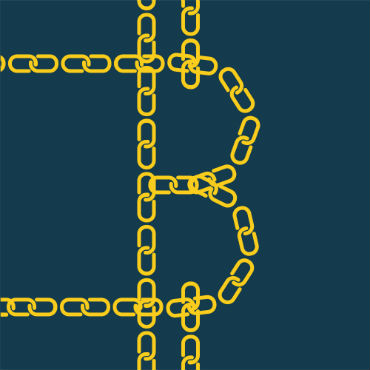Taking blockchain beyond bitcoin

Blockchain isn't just for bitcoin, and federal agencies might find other uses for the secure recordkeeping tool.

To the degree that most people think about blockchain technology at all, it's in conjunction with the cryptocurrency bitcoin. But blockchain is also a versatile recordkeeping tool.
In fact, the central libertarian mechanic of bitcoin — a distributed validation network with no central authority in charge — is not a necessary component of blockchain and might well be scrapped for government uses of the tool.
In its bitcoin application, blockchain serves as a public, permanent ledger of transactions. Computers worldwide generate the horsepower needed to validate and cryptographically hash transactions as they accumulate. Every 10 minutes or so, a new block gets added to the chain that everybody can see. Each block contains multiple transactions.
"There's no authority that issues them," Deputy U.S. Chief Technology Officer Ed Felten said. "It's just a thing."
A company or agency could use that concept as-is, or it could insert itself as the validating authority instead of the network. The U.S. Postal Service, for example, has floated the idea of creating and maintaining a "Postchain" platform for financial transfers.
The potential uses of blockchain are legion. Financial institutions such as Goldman Sachs are exploring using blockchain to track transactions. And Felten told the Information Security and Privacy Advisory Board in June that blockchain could enable complicated financial contracts to self-execute, removing the potential for human error to be introduced months or years after establishment.
Travis Hall, a policy analyst at the National Telecommunications and Information Administration, said government agencies could use blockchain for a slew of documentation activities, such as keeping voter and health care records up-to-date, managing real estate titles or even tracking certificates and authentication for Internet of Things devices for cybersecurity purposes.
Because cryptography underpins the whole series of records, maintaining the security of cryptographic keys will be essential if governments plan to rely on blockchain, Felten said.
Andrew Regenscheid, a mathematician at the National Institute of Standards and Technology, said future cryptographic solutions might offer multiparty digital signatures and privacy enhancements.
"Ultimately, we're not expecting to see a single model of the blockchain for everyone," he added. "We think that this is going to be something that's tailored for different applications."
NEXT STORY: NNSA looks to map lightning before it strikes


